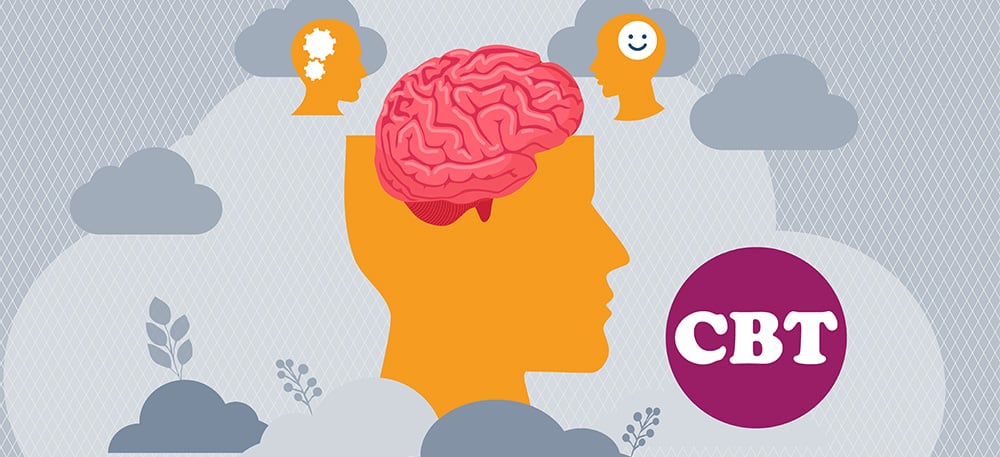What is Trauma-Focused Cognitive Behavioral Therapy?
Trauma-focused Cognitive Behavioral Therapy (TF-CBT) was specifically developed to help children and adolescents after a traumatic experience. It is an evidence-based treatment focusing specifically on trauma impacts. TF-CBT has been evaluated and refined over the past 25 years to help children and adolescents recover from traumatic events. Randomized clinical trials demonstrated that TF-CBT was superior for improving children’s trauma symptoms and responses.
TF-CBT addresses the multiple domains of trauma impact, including but not limited to Posttraumatic Stress Disorder (PTSD), depression, anxiety, externalizing behavior problems, relationship and attachment problems, school problems, and cognitive problems. TF-CBT includes skills for regulating emotions, behavior, thoughts, and relationships, trauma processing, and enhancing safety, trust, parenting skills, and family communication.
Although TF-CBT is highly effective at improving youth PTSD symptoms and diagnosis, a PTSD diagnosis is not required to receive this treatment. TF-CBT also effectively addresses many other trauma impacts, including affective (e.g., depressive, anxiety) and cognitive and behavioral problems, as well as improving the participating parent’s or caregiver’s distress about the child’s traumatic experience, practical parenting skills, and supportive interactions with the child.
Substance Abuse and Mental Health Services Administration (SAMHSA) has recognized TF-CBT as a gold standard treatment due to significant outcome data from empirically based randomized controlled trials that support its effectiveness in improving various problems. Even though TF-CBT was initially developed to address the needs of children who experienced sexual abuse, over the past few decades, it has been used and researched for many other traumatized youth populations. Research now documents that TF-CBT is effective for diverse, multiple, and complex trauma experiences for youth of different developmental levels and across different cultures.
- Acronym for intervention: TF-CBT
- Average length and number of sessions: Typically 12-25 sessions (60-90 minute sessions, divided approximately equally between youth and parent/caregiver)
- Adaptations: TF-CBT has been modified to address the needs of Latinos, Native Americans, the deaf and hearing impaired, the military, and many international populations. It has been provided in group formats and multiple settings (e.g., homes, foster homes, schools, and residential treatment facilities) to address transportation barriers.
- The primary type of trauma addressed: Sexual abuse, domestic violence, traumatic grief, disaster, terrorism, and multiple or complex traumas.
How is Trauma Focused CBT different from CBT?
TF-CBT is an evidence-based treatment for children and adolescents (and their parents or caregiver) impacted by trauma. It is a components-based treatment incorporating trauma-sensitive interventions with cognitive behavioral, family, and humanistic principles and techniques. TF-CBT has proved successful with children and adolescents (ages 3 to 18) who have significant emotional problems (e.g., symptoms of posttraumatic stress disorder, fear, anxiety, or depression) related to traumatic life events. It can be used with children and adolescents who have experienced a single trauma or multiple traumas.
TF-CBT has four major components: psychoeducation, relaxation, cognitive processing, and exposure. The exposure component is usually delivered last and is the most challenging for the client and therapist. However, it is also the most critical component of TF-CBT as it helps the client to confront the memories and emotions associated with the trauma and to develop new, more adaptive coping skills.
Drawbacks of TF-CBT
TF-CBT is an effective treatment for children and adolescents who have experienced trauma. However, there are some drawbacks to TF-CBT. First, TF-CBT is a time-consuming treatment. The treatment can take several months to complete, and it requires the participation of both the child and the parents/caregivers. Second, TF-CBT can be emotionally challenging for the child and the parents/caregivers. The child may need to talk about difficult and painful memories during treatment. The parents/caregivers may also need to talk about their reactions to the child's trauma. Finally, TF-CBT requires the involvement of a trained mental health professional. Not all communities can access trained mental health professionals specializing in TF-CBT.
Who Should Not Participate In TF-CBT?
There is no one-size-fits-all answer to the question of who should not participate in trauma-focused therapy. However, some individuals may not be appropriate candidates for this evidence-based treatment. For example, trauma-focused therapy techniques may not be suitable for individuals who are not yet ready to confront their traumas or cannot tolerate the discomfort associated with reliving traumatic memories. Additionally, TF-CBT may not be appropriate for individuals who cannot engage in the cognitive and behavioral tasks required to progress in treatment. Ultimately, the individual should decide whether or not to participate in trauma-focused therapy in consultation with a qualified mental health professional.
Additional Trauma Resources
Training
Blog Posts
- Post-Traumatic Stress Disorder Comorbidity + Differential Diagnosis
- How to Become a Trauma Therapist
Research
- Addressing Trauma via Juvenile Probation Officer’s Treatment Planning
- Additional Insight on the Confluence and Impact of Trauma, Mental Health, and Incarceration
- Childhood Trauma and Risk Factors for Institutional Violence






















